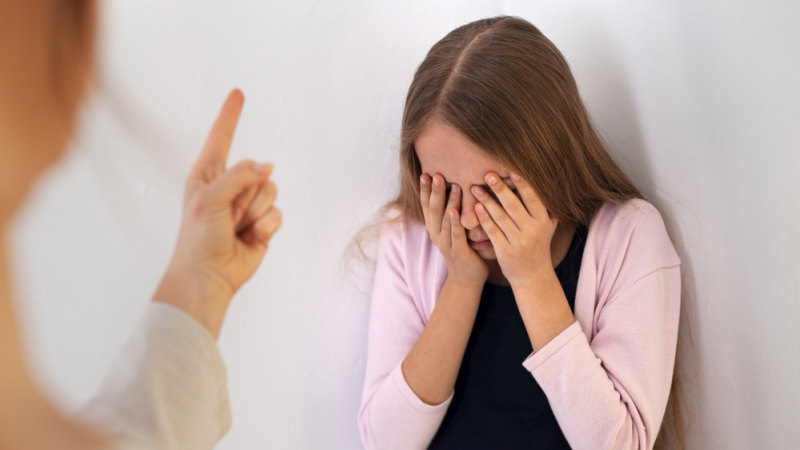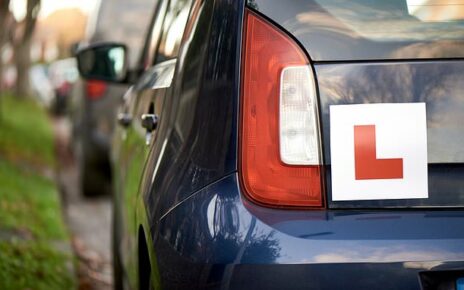Save articles for later
Add articles to your saved list and come back to them any time.
It requires much patience and dedication, but for teacher Indra Walia de Leon and husband Jesse, time-out as a discipline strategy is off the table for their son.
The parenting technique popularised in the late 1950s as an alternative to corporal punishment is the world’s second most popular discipline technique, according to University of Sydney behavioural expert Professor Mark Dadds (verbal explanations about behaviour top the list).
“Ride the wave” of parenting: Jesse and Indra Walia de Leon with son AJ.Credit: Simon Schluter
But for Walia de Leon, critics who say it is isolating for a child and potentially harmful have a point.
“We do not do time-out at all,” says Walia de Leon, whose son AJ is eight. “We’re not interested in saying, ‘Go work it out yourself’. For us, that means detachment.”
Instead, when AJ is having the kind of “red zone” emotional moment pretty much unavoidable in childhood, one or both parents “ride the wave”.
“We’re all learning together, it’s not easy, but we’re showing AJ that we’re there as his support network, and it’s OK to be emotional or having a bad day or moment.”
What discipline should never be
- Used for a child’s mistakes, fear or emotions
- Humiliating, isolating
- Non contingent (on time-out being ended when they calm down), of a long duration
- Rejecting, as that is an attachment threat
- Based on fear
- Unsafe
- Source: Professor Mark Dadds, director of the Sydney Child Behavior Research Clinic at the University of Sydney
Despite the bad rap time-out gets in some parenting circles and past research, Dadds, a leading Australian clinical psychologist, says the way parents do time-outs is often the problem.
The director of the Sydney Child Behaviour Research Clinic told 700 delegates at a global evidence-based parenting conference that 60 years of research had shown parents were not well-informed on time-out, even though it was “an incredibly important topic … and very much implemented and understood [by parents] incorrectly”.
When done calmly, occasionally and only for short periods until the child settled their emotions, Dadds says the time-out is good for child development, and that the strategy’s poor image needed updating.
Dadds says his recent research found 40 per cent of Australian parents used time-out when a child made a mistake or accidentally did something bad, while 22 per cent did so when a child refused to do something due to fear or anxiety. More than 76 per cent of parents were not calm when they used time-out.
Time-out should not be used when a child makes a mistake by accident or refused to do something out of fear, Professor Mark Dadds says.Credit: Shutterstock
More than half did not make release from time-out contingent on the child’s calm behaviour returning.
“There’s decades of positive evidence for it, however we know people do [time-out] incorrectly all over the world,” Dadds says.
“Despite the huge amounts of evidence showing when it’s done correctly it’s good for children and good for parents, there [are] people all over the world saying it’s harmful to children and must never be used.
“The evidence is once you do it well, time-out is a really good alternative to smacking, yelling and shaming children.”
‘The worst thing you can do as a parent is to make the child sit in a corner as punishment because you’ve lost control.’
National Children’s Commissioner Anne Hollonds agreed that many parents were not educated on how to use discipline such as time-out. She says it is useful, but that “you need to know your child, and their particular needs, to fine tune and tailor your approaches”.
“The worst thing you can do as a parent is to make the child sit in a corner as punishment because you’ve lost control, you’re angry with them, and you want to punish them,” she says.
“Some kids and situations can really push you to the edge, and you’re beyond upset yourself: try not to let it get to that point … every parent needs to get in much earlier with whatever technique, and set it in a more positive framework.”
Dr Catriona Davis-McCabe, president of the Australian Psychological Society, says time-out can be an effective way to teach children to self-regulate emotions and understanding the importance of boundaries and rules. But time-outs need to be positive, not punitive.
“This means stopping time-out after your child has calmed down to positively reward their behaviour change, instead of keeping them there for a prolonged period as a punishment to fear,” she says.
“We also need to destigmatise the challenges that come with parenting, so parents can get the support they need without fear of judgment or feelings of failure.”
Victorian researchers report that while about four in five parents were confident of their parenting, the proportion that said they felt “very high psychological distress” nearly doubled between 2016 and 2022, and nearly half were experiencing at least moderate psychological distress.
The Parenting Research Centre’s third “check in” with parent wellbeing found they were struggling with mental health, not getting enough sleep and felt under pressure.
Three in five of the 2600 primary carers surveyed said they did not do anything for themselves to relax, two-thirds said they did not get enough sleep – on average they estimated they had less than seven hours a night – and two in five felt tiredness hampered them being the parent they wanted to be.
Nearly half were dissatisfied with the amount of time they could give their children, and 34 per cent of fathers and 37 per cent of mothers said their workplace wasn’t flexible enough.
Principal researcher Catherine Wade says while 90 per cent of respondents found parenting rewarding, one-fifth said it was frustrating, and 17 per cent confessed to smacking misbehaving children. Pressure to be the ideal parent was a key source of stress.
“Pressure to be the perfect parent, be everything to everyone, do the homework with children after school, be the taxi driver to and from sports activities, to keep up with the housework, the social life … [is causing] a wave of parents saying, ‘We’re just tired’,” Wade says.
“We are being too hard on ourselves.”
Fathering advocate Jeremy Macvean, of The Father Hood group, said though dads reported being a parent was “the most satisfying role in their lives”, juggling competing roles was a source of general fatigue.
“There are so many competing priorities, it’s hard to know if you are ever winning,” Macvean says.
“You can never get on top of them, and never get to the end of the ‘to-do’ list, and there are too many to-do lists; they feel they’re not meeting expectations.”
The Morning Edition newsletter is our guide to the day’s most important and interesting stories, analysis and insights. Sign up here.
Most Viewed in National
From our partners
Source: Read Full Article





